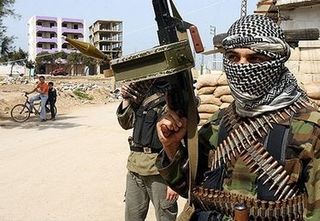Many more workers have arrived in Britain from Eastern Europe since enlargement of the EU in May than the Government predicted, figures showed yesterday
Published:
11 November 2004 y., Thursday
Many more workers have arrived in Britain from Eastern Europe since enlargement of the EU in May than the Government predicted, figures showed yesterday.
Nearly 91,000 people from the eight former Soviet-bloc states that joined the EU registered to work in the first five months after the expansion. The Tories said many others may have taken on a job without registering.
In the run-up to enlargement, ministers dismissed suggestions of a major influx of migrant workers and regularly cited an official estimate of between 5,000 and 13,000 additional arrivals per year.
The latest figures are seven times that forecast in under half the period. However, David Blunkett, the Home Secretary, said they showed that the worker registration scheme, set up to dampen controversy over enlargement, was operating effectively.
Normally, EU citizens can travel freely to settle and work in other member states. But the 15 existing members were allowed to operate controls on migration from the new states for up to seven years.
While most governments imposed restrictions, Britain decided not to. The Government said Britain needed more workers but it faced accusations of failing to protect the country's borders. It decided to establish a registration scheme to discourage new arrivals from working in the black market.
The Home Office said 45 per cent of those who had registered were already in the country. Mr Blunkett said the new arrivals, mostly aged between 24 and 34, had helped to fill job vacancies in hospitality and agriculture, and had legalised some who had not been paying tax.
Šaltinis:
news.telegraph.co.uk
Copying, publishing, announcing any information from the News.lt portal without written permission of News.lt editorial office is prohibited.
The most popular articles
 Militants in the Philippines have killed a head teacher from this school in Jolo. An official from the army said the man was beheaded.
more »
Militants in the Philippines have killed a head teacher from this school in Jolo. An official from the army said the man was beheaded.
more »
 Ruca is no ordinary police dog. Instead of sniffing out drugs and explosives, he puts his nose to fighting the piracy industry.
more »
Ruca is no ordinary police dog. Instead of sniffing out drugs and explosives, he puts his nose to fighting the piracy industry.
more »
 Afghans vent their anger on the streets of Kabul. They accuse American troops of burning a copy of Islam's holiest book, the Koran, during a raid in Maidan Wardak province last week.
more »
Afghans vent their anger on the streets of Kabul. They accuse American troops of burning a copy of Islam's holiest book, the Koran, during a raid in Maidan Wardak province last week.
more »
 73% of Europeans consider poverty to be a widespread problem in their country while 89% want urgent action by their government to tackle the problem.
more »
73% of Europeans consider poverty to be a widespread problem in their country while 89% want urgent action by their government to tackle the problem.
more »
 Parliament adopted three urgent resolutions on the need for the EU to impose sanctions further to the violent repression of a demonstration in Guinea Conakry, the abolition of the death penalty in Iran, and access for humanitarian organisations to the 250,000 civilians displaced by the civil war and held in camps in Sri Lanka.
more »
Parliament adopted three urgent resolutions on the need for the EU to impose sanctions further to the violent repression of a demonstration in Guinea Conakry, the abolition of the death penalty in Iran, and access for humanitarian organisations to the 250,000 civilians displaced by the civil war and held in camps in Sri Lanka.
more »
 The award ceremony of the Lorenzo Natali Prizes for Journalism took place today during the 2009 European Development Days.
more »
The award ceremony of the Lorenzo Natali Prizes for Journalism took place today during the 2009 European Development Days.
more »
 The European Parliament's 2009 Sakharov Prize for Freedom of Thought has been awarded to Russian civil rights defence organization Memorial, and their three representatives Oleg Orlov, Sergei Kovalev and Lyudmila Alexeyeva, as well as all other human rights defenders in Russia.
more »
The European Parliament's 2009 Sakharov Prize for Freedom of Thought has been awarded to Russian civil rights defence organization Memorial, and their three representatives Oleg Orlov, Sergei Kovalev and Lyudmila Alexeyeva, as well as all other human rights defenders in Russia.
more »
 Taking into account changes on domestic money markets AB DnB NORD Bankas, a member of international financial group shall change individual and corporate time deposit rates from October 22.
more »
Taking into account changes on domestic money markets AB DnB NORD Bankas, a member of international financial group shall change individual and corporate time deposit rates from October 22.
more »
 Wild birds know no borders, so the conservation of endangered species requires trans-frontier cooperation.
more »
Wild birds know no borders, so the conservation of endangered species requires trans-frontier cooperation.
more »
 New safety standards for children's sleeping items - including duvets, baby sleeping bags and cot mattresses - which should help to prevent many cot –related accidents, were given a green light today by EU Member States.
more »
New safety standards for children's sleeping items - including duvets, baby sleeping bags and cot mattresses - which should help to prevent many cot –related accidents, were given a green light today by EU Member States.
more »